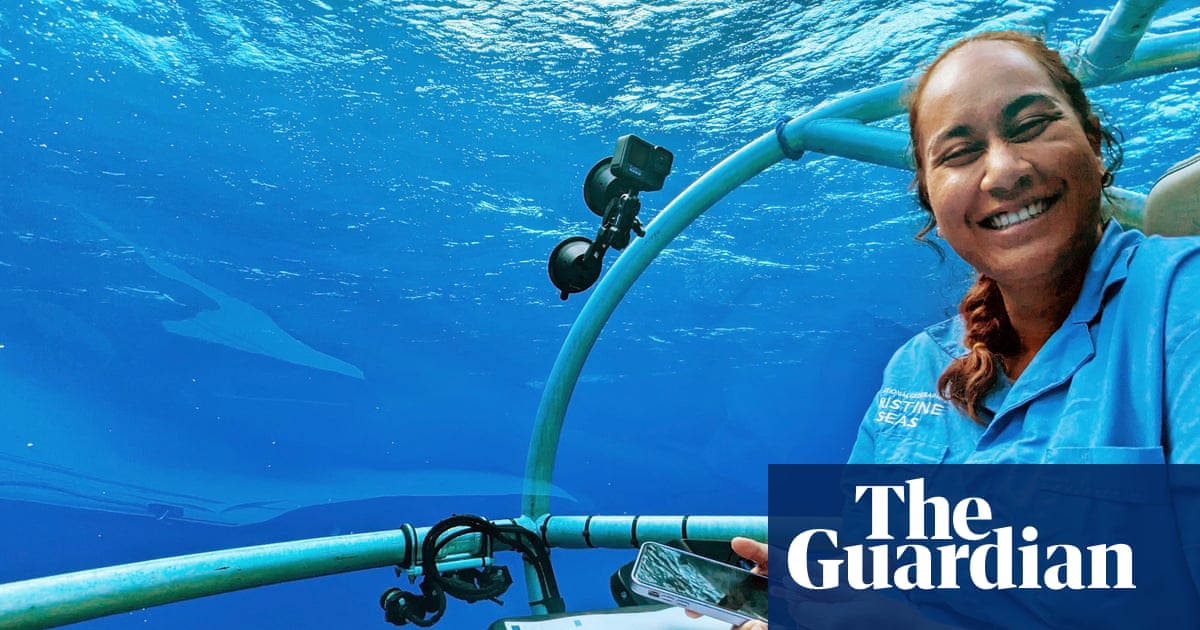On the island of Rotuma inFiji, Christmas is a time of joy, a celebration bursting with song, dance and laughter. Charlene Erasito remembers watching the festivities there when she was a child, captivated as people paraded through the village for “fara,” a local Christmas celebration.
Erasito never imagined that decades later, she would return to the same shores, no longer as a spectator but as a scientist. Erasito, now 30 years old, is the only female Pacific Islander aboard an ambitious expedition seeking to document unexplored ocean ecosystems in Fijian waters.
The months-long project, led by National Geographic Pristine Seas, began in April with a crew of local and international experts. It starts with deep sea exploration and will later examine shallower parts of the ocean. The expedition began in Fiji and will also travel toTuvaluand Tonga.
Stepping on the deck of the research vessel last month, Erasito was affectionately nicknamed “Moana” by her crew mates – a title she accepts with a laugh.
“It was funny because, as a child, I actually had a pet pig and chicken,” Erasito says, referencing the popular animated Disney film. “Except I named them ‘Pig’ and ‘Chicken’. Zero creativity there.”
Erasito is studying for her PhD at the French national institute for ocean science and technology. The invitation to join the expedition came after her research on seamounts – underwater mountains that rise from the sea floor- and biodiversity in New Caledonia impressed the Pristine Seas team. In that project, she used remote-operated vehicles, imagery and acoustic data to explore deep-sea life.
She has family links to Rotuma and was “speechless” when asked to join the Fijian project.
“I was at work in France when the invitation came. It took me days to process and respond. It was surreal,” she says.
“I was thrilled to be going back to sea, but this expedition would be different. We would be exploring deep-sea ecosystems around my home island of Rotuma – something I never imagined I’d have the chance to do” she says.
Erasito says it “felt like a duty” to return to the Rotuma, where she remembers travelling as a child for her late father’s work. She had fond memories of swimming, fishing and the beach.
“I used to listen to stories of night fishing that my dad would share or different aspects of Rotuma … but mostly the significance of the ocean to Rotuma and her people.”
“Every person we met on the island felt like family – whether or not we were actually related. That’s the magic of home.”
The expedition has given Erasito experience with new technologies including types of underwater cameras and video tools.
“Seeing the deep-sea footage – the fish, the corals, and the life hidden beneath the surface – was incredible. And to know we’re exploring with minimal disruption to these fragile habitats was important to me.”
The deep-sea part of the Rotuma exploration has wrapped up, and the vessel is on its way to Tuvalu. So far, scientists have documented diverse and healthy ecosystems, and have begun sharing their knowledge with village chiefs. At the end of the journey, they will report the full findings to government and other partners.
Dr Keiron Fraser, expedition leader for Pristine Seas, said Fiji and Rotuma are home to “an awe-inspiring array of marine life”
“Guided by our local partners, this team will help unlock the mysteries of the ocean so we can learn how to best protect it,” he said.
The Pacific Ocean is home to many, but due to its sheer size, there are areas that are yet to be fully explored.
“For many of our islands, the ocean isn’t just our back yard. It’s our lifeline. Protecting it starts with knowledge – and that starts with expeditions like this,” Erasito says.
Fraser says Erasito’s involvement has been “inspiring for the young people in Rotuma”.
“We’ve been unbelievably lucky to have Charlene with us. The children loved her… a real example of what’s possible.”
Erasito hopes other young Pacific women will follow her path.
“The ocean is in our blood, our stories, and our responsibilities. You belong – in science, on ships, in submarines, and in rooms where ocean decisions are made. Follow your heart.”
